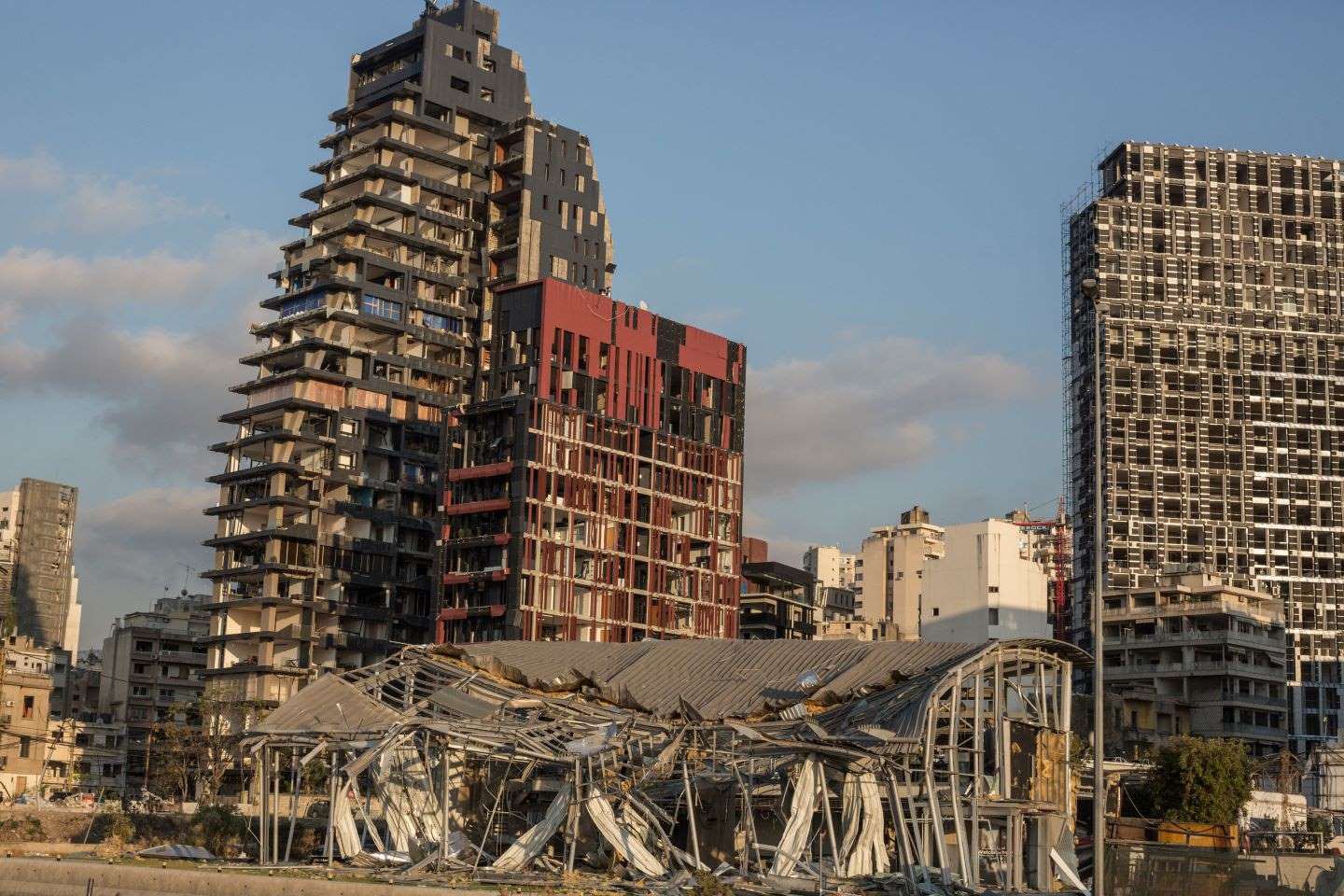Oxfam and partners continue helping vulnerable people.
Six months after a massive explosion in the port of Beirut, the city continues the struggle to recover. When 2,750 tons of improperly stored ammonium nitrate blew up on August 4, 200 people died and the homes of 30,000 people were destroyed in the blink of an eye. Nearby hospitals were badly damaged, and food stocks stored at the port were also lost.
We’ve been working with 11 partner organizations to help people since the hours after the explosion, including by:
- distributing food
- providing emergency and temporary cash assistance
- rehabilitating houses
- providing legal assistance and consultation, and
- offering psycho-social support and medication
We’ve reached about 9,000 people in the affected area, focusing particularly on the needs ofwomen, girls, LGBTQ+ community members, people with disabilities, and migrant workers.
Housing damage
In the days and weeks after the blast, tens of thousands of people were unable to rebuild their homes. Prices for construction materials soared: The cost of a single front door was two months of a minimum-wage salary; a single window more than a month’s worth. Many people had to instead use plastic tarps, make unsafe repairs, or simply try to move in with other families.

Oxfam’s partner Samidoun supervised repairs to homes in the Karantina neighborhood, where Bahjat al-Shekh Mousa, 70, survived the explosion in his house. “I thought that the world [was] coming to an end,” he says. “The sound and the destruction were beyond imagination. In just one second everything was destroyed: the doors, windows, ceiling, and furniture.”
His entire building was rehabilitated by Samidoun, and the work was supervised by a group of civil engineers who assessed the damage and ensured that the work was up to standards.
Businesses rebuild and recover
Half the businesses near the port were badly damaged or destroyed, and 70,000 people lost their jobs. “We couldn’t operate at all after the blast,” said Adib Dorra, manager of a coffee shop in the Mar Mkhael district. “The glass façade was shattered, the decorations, ventilation system, plumbing, walls, and flooring were damaged.”
Like many businesses, his shop had been closed as a measure to control the COVID-19 pandemic, and he was looking to recoup losses when businesses re-opened. But as building costs skyrocketed after the blast, the shop’s future was uncertain until Dorra received assistance from Oxfam and its partner in Beirut to repair and re-equip the shop.
Women already severely affected
Women in Beirut have been suffering high levels of domestic violence during the COVID-19 pandemic, with the government estimating a 400 percent increase in violence against women while many were locked down in situations of ongoing abuse. Women displaced by the blast and seeking temporary shelter in crowded situations have become even more vulnerable to violence and COVID-19. More than half the households affected by the port explosion were headed by women, and some elderly women living alone were unable to reach aid distribution points in the days following the blast.
Oxfam and our partners in Beirut are taking measures to address unequal access to assistance sometimes suffered by women-headed households, as well as populations of LGBTQ and disabled people.
In addition to providing support during this emergency, Oxfam and its partners have been assisting vulnerable people who have been displaced by conflict in Syria and are seeking shelter in tent communities in the Bekaa Valley -- an effort severely complicated by the COVID-19 pandemic. Since March 2020, we have been working with our local partners to distribute water, soap, and disinfection kits to refugees in these informal settlements.
